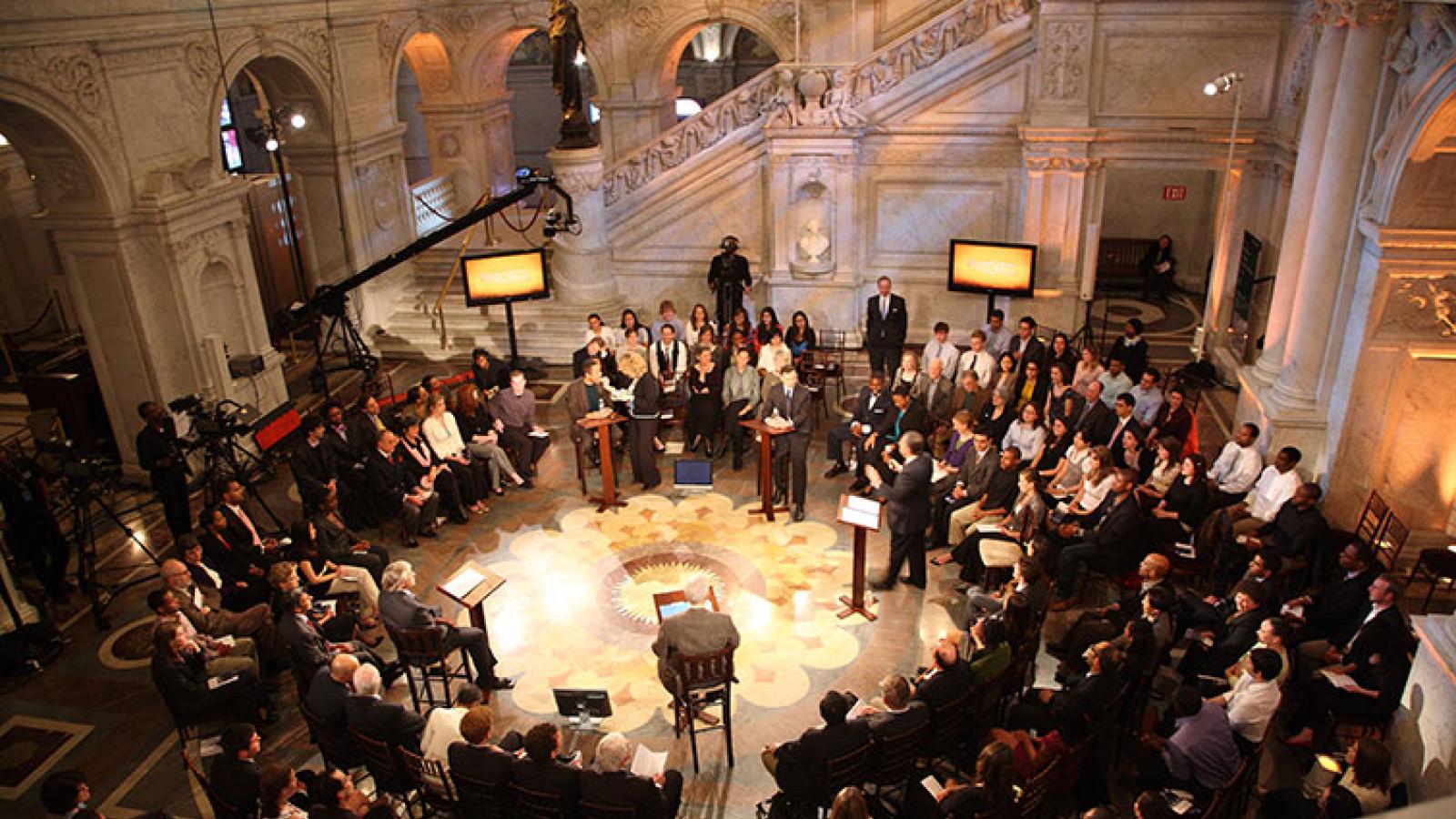The Future of Affirmative Action: National Discussion and Debate Series
Over the past several years, race-based opportunity policies have been on the defensive. In 2006, 58% of Michigan voters approved a statewide referendum ending affirmative action in public education. A year later, the U.S. Supreme Court forced public school administrators to use socioeconomic status, not race, to integrate segregated public schools. In 2008, Nebraska voters approved a statewide ballot initiative banning all racial preferences, while voters in Colorado rejected a similar measure; future referendums are being prepared in other states. President Barack Obama injected energy into the race-versus-class debate when he suggested that poor whites should at times be given preference over more privileged blacks.
Resolved: Affirmative Action should focus on class and wealth rather than race and ethnicity
Arguing for the resolution:
John McWhorter, Senior Fellow at the Manhattan Institute and columnist for The New Republic, holds a PhD in linguistics from Stanford, and has taught at UC-Berkeley and Cornell University. He currently teaches in Columbia University's Core Curriculum program, specializing in language change and language contact. He is the author of The Power of Babel: A Natural History of Language (2001), and Doing Our Own Thing: The Degradation of Language and Music in America and Why We Should, Like, Care (2003). He is also author of the anthology Losing the Race (2000), Authentically Black (2003), Winning the Race: Beyond the Crisis in Black America (2005) and Our Magnificent Bastard Tongue (2008).
Dalton Conley is University Professor, Chair of Sociology and Acting Dean of the Social Sciences at New York University. He also holds appointments in NYU's Wagner School of Public Service; as an Adjunct Professor of Community Medicine at Mount Sinai School of Medicine; and as a Research Associate at the National Bureau of Economic Research. His first book, Being Black, Living in the Red: Race, Wealth and Social Policy in America (1999), explored how the wealth gap between blacks and whites in the U.S. perpetuates continued racial inequality. He is also the author of Honky, a "sociological memoir" (2000).
Arguing against the resolution:
Julian Bond has been an activist in the movements for civil rights, economic justice, and peace since he helped found the Student Nonviolent Coordinating Committee in 1960. He has served four terms on the NAACP's National Board, and has been Chairman since 1998. He was President of the Atlanta NAACP (1978–89). Bond serves on the board of the Southern Poverty Law Center, where he is President Emeritus, and was President and founder of the Southern Elections Fund, helping elect rural Southern black candidates. He served four terms in the Georgia House of Representatives (1965–75) and six terms in the Georgia Senate (1975–86).
Lee C. Bollinger became Columbia University's nineteenth President in 2002. A prominent Affirmative Action advocate, he played a leading role in the twin 2003 Supreme Court cases that upheld and clarified Affirmative Action in higher education. A leading First Amendment scholar, he serves on the faculty of Columbia Law School. His awards include the National Humanitarian Award from the National Conference for Community and Justice, and the National Equal Justice Award from the NAACP Legal Defense and Education Fund. He is a former President of the University of Michigan, where he was also Dean of the Law School and a law professor.
Moderator:
Ray Suarez has been a Senior Correspondent for The NewsHour with Jim Lehrer since 1999. His most recent book is The Holy Vote, examining the relationship between religion and politics in America, and his work has appeared in the New York Times, Washington Post, and Chicago Tribune. A former host of NPR's Talk of the Nation, Suarez has worked for CNN, ABC Radio Network, and CBS Radio. Suarez hosts the monthly public radio foreign affairs series America Abroad for PRI, and is narrator of RadioWorks, the documentary unit of American Public Media.
